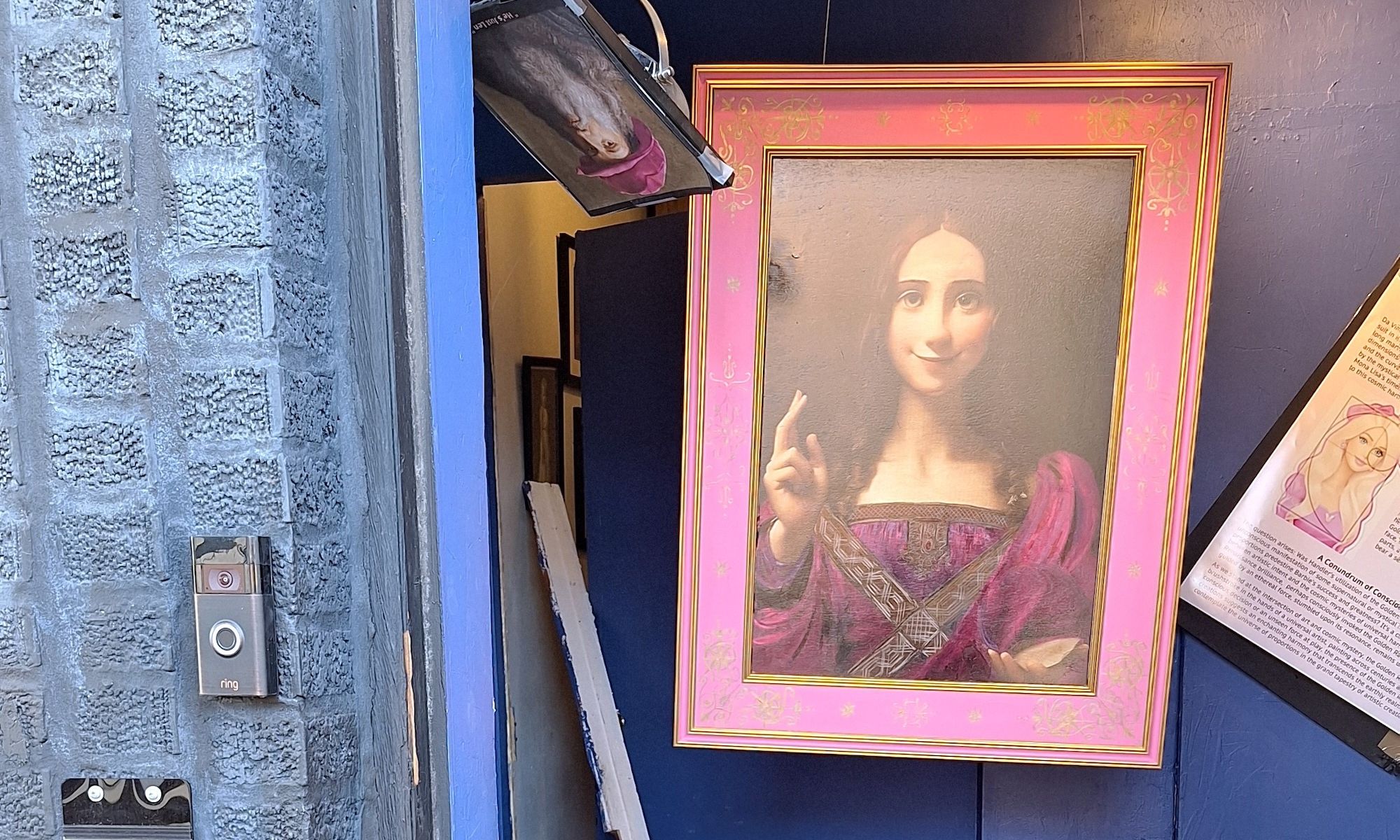The Salvator Mundi Museum of Art in Brooklyn following a break-in on 17 August Courtesy the Salvator Mundi Museum of Art
The whereabouts of Salvator Mundi, the painting attributed to Leonardo da Vinci and sold for $450m to the Saudi crown prince Mohammed bin Salman at Christie’s Manhattan headquarters in 2017, remain unknown—most recently it has been rumoured to be sitting in storage in Geneva. But, the whereabouts of the Salvator Barbi, the current star attraction at the Salvator Mundi Museum of Art in Brooklyn, are known: it remains at the tiny storefront institution’s headquarters in the Carroll Gardens neighbourhood, despite a violent break-in over the weekend.
According to security camera footage reviewed by The Art Newspaper, early on the morning of 17 August a person broke into an adjacent restaurant. The intruder seemingly then smashed open the internal door connecting the restaurant and museum. Though several pieces of Salvator Mundi-branded merchandise—including bottles of wine and shoes—were left strewn on the museum floor in the fracas, no items from its collection were taken.
“While we are disheartened by this blatant criminal act, we are relieved that no harm came to our artworks, which hold immense cultural and historical value,” Dabora Choi, an artist and the museum’s chief coordinator of curatorial affairs said in a statement. She confirmed to The Art Newspaper that the museum will reopen on 23 August, adding: “We’re getting a new alarm system installed.”
The reopening will give the public one last chance to see an exhibition outlining the parallels between the Salvator Mundi and the lucrative Mattel toy brand, which has been the subject of several major museum shows lately. The specially commissioned Salvator Barbi painting is the centrepiece, intended as a “visual testament to the unexpected harmony between these two cultural phenomena”, according to a press release.
The exterior of the Salvator Mundi Museum of Art; a sign on the door explains that it is "temporarily closed due to attempted robbery" Benjamin Sutton
Next week, that exhibition will be replaced by an another devoted to a Salvator Mundi-themed mechanical bank that the museum acquired in May. Much like the painting it was inspired by, the Salvator Mundi mechanical bank is shrouded in mystery. It was discovered at a flea market in Ponchatoula, Louisiana, last April. After the buyer contacted the museum looking for help in researching the object’s origins, the institution was ultimately able to acquire it.
“We are exceptionally fortunate and honoured to add the Salvator Mundi mechanical bank to our collection,” Choi said at the time in a statement. “Regardless of its ultimate origin, it stands as a testament to human ingenuity and artistic innovation.”
Similarly, the Salvator Mundi painting that was eventually attributed to Leonardo also surfaced at an off-the-radar sale in Louisiana. The painting, badly in need of restoration, was famously bought for just $1,175 at a New Orleans Auction Galleries sale in 2005 by a pair of eagle-eyed dealers. Twelve years later, it achieved the highest price ever paid for a piece of art.

